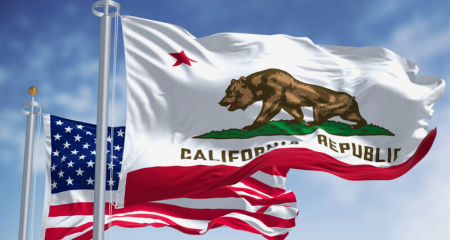In 2021, the California Court of Appeal ruled in All of Us or None of Us v. Hamrick that an individual’s date of birth (DOB) and driver’s license (DL) could no longer be used to identify criminal defendants in public records. It’s no secret that California's decision to redact personally identifiable information (PII) on criminal records has posed significant challenges for the background screening industry, such as extensive turnaround times, massive backlogs, and increased costs. Efficient and timely background checks are essential to any hiring process and delays affect our industry, the employer looking to fill a role in their organization, and the candidate anxiously awaiting a new job.
![]() We dug into California PII redaction in a recent webinar, check it out here.
We dug into California PII redaction in a recent webinar, check it out here.
Why are dates of birth so important?
Dates of birth play a crucial role in background screening processes, allowing researchers to accurately identify individuals and distinguish between multiple subjects with the same name. I’d like to illustrate the importance of dates of birth with a quick example.
Let's consider California’s own Rose Bowl stadium in Pasadena – a space that can hold over 91,000 people. According to a quick Google search, James, Michael, and Robert are the three most common names in America. In the US alone, there's more than a hundred thousand James, Michael, and Robert Smiths. So, to put it in perspective, all the James, Michael, and Robert Smiths in the US could not fit in the Rose Bowl stadium… That’s a lot of people with the same name!
With over a hundred thousand individuals in the US sharing just these three names, it becomes evident that relying solely on names without dates of birth would make it nearly impossible to accurately determine an individual's background. This example highlights the critical role that dates of birth play in ensuring precise and reliable background screening results. And, due to the PII redactions, background screening companies face significant hurdles in obtaining dates of birth and other vital PII. This limitation not only increases the effort and resources required to retrieve this information but also poses delays and difficulties in making hiring decisions.
Challenges in Los Angeles, Sacramento, and San Diego
The impact of PII redaction varies across different regions, with Los Angeles, Sacramento, and San Diego being particularly challenging. Each county has its own unique processes and difficulties in retrieving complete dates of birth, making it that much more difficult for Consumer Reporting Agencies (CRAs) and background screening companies to complete California background checks.
For example, in San Diego, requests for information are limited to only five cases at a time. Once these five cases are requested, individuals must join the back of the line, potentially waiting several hours due to the high demand. It's important to note that this limit applies to cases and not subjects, so if an individual has multiple cases, the background check process can become significantly delayed and time-consuming. We dig into the specifics of each of these three areas in our recent webinar, so give it a listen if you're interested in learning more.
How to stay informed
As we look to the future, the most important thing your CRA can do is stay up to date and informed. One of the ways you can do this is by getting involved and staying active with the Professional Background Screening Association (PBSA). We’d like to take a moment to highlight an important communication on California from PBSA from early April:
On the initiatives below, PBSA is again partnering with The Consumer Data Industry Association (CDIA) to address these bills.
CA SB 647 (FOUND HERE) – A bill to restore access to date of birth in California. You will recall that last year we made it through both houses and had our bill vetoed by Governor Newsom. This year we are again attempting to restore access – but with a veto on the prior bill we have an even bigger hill to climb. Our new bill language was drafted with consideration of the governor’s veto message. Additionally, PBSA and CDIA’s respective lobbyists are meeting with opponents to the bill in order to keep communication open and listen to their concerns, though no compromise position seems imminent.
We intended SB 647 to be our main priority in California this year. That changed on February 17th when we became aware that 2 bills had been filed that effectively ban background screening unless you have a legal requirement to background check.
CA SB 460 (FOUND HERE) – a bill effectively banning tenant screening unless you have a legal requirement to conduct a background check for tenancy. It mirrors recent actions by Alameda County and cities of Oakland and Berkley. While this bill was recently dropped from the 2023 legislative calendar, we expect it will be reintroduced in 2024 so we will need to continue our discussions on how to defeat the bill and work alongside our allies to do so.
CA SB 809 (FOUND HERE) – a bill effectively banning employment screening unless there is a legal requirement to background check for employment purposes. This bill remains active as of this member communication. We have been advised that it is undergoing amendments (which we do not expect to make the bill acceptable) and it is currently scheduled for its first committee hearing on April 11th. We expect that if this bill continues forward (i.e. is not dropped for 2023 as 460 was) it will pass out of committee because the author of the bill is also the chair of the committee where its first hearing will take place.
This communication is a great example of how PBSA keeps our industry up to date on the latest in California and other areas facing different or similar challenges. In addition to PBSA, we recommend you subscribe to a trusted newsfeed source, email subscription, or landing page that contains specific, jurisdiction-level information on what’s going on in California or other affected areas. For example, we recently launched our California DOB Tracker landing page that provides detailed information for each county regarding what DOB components are publicly available, whether full DOB can be obtained (and if so, how), whether there are any fees involved, and any additional limitations. This is just one of the ways that InformData helps keep CRAs and background screening companies informed.
While PII redaction in California has presented significant challenges for the background screening industry, staying informed is paramount. Leveraging available resources and collaborating with experienced screening providers will enable organizations to conduct thorough and reliable background checks while ensuring compliance with privacy regulations. If you have any questions about California or anything background screening, contact us.
By the way, we are also tracking Michigan Clean Slate Law details and International Requirements – bookmark these pages for easy access to more important information for your CRA.



